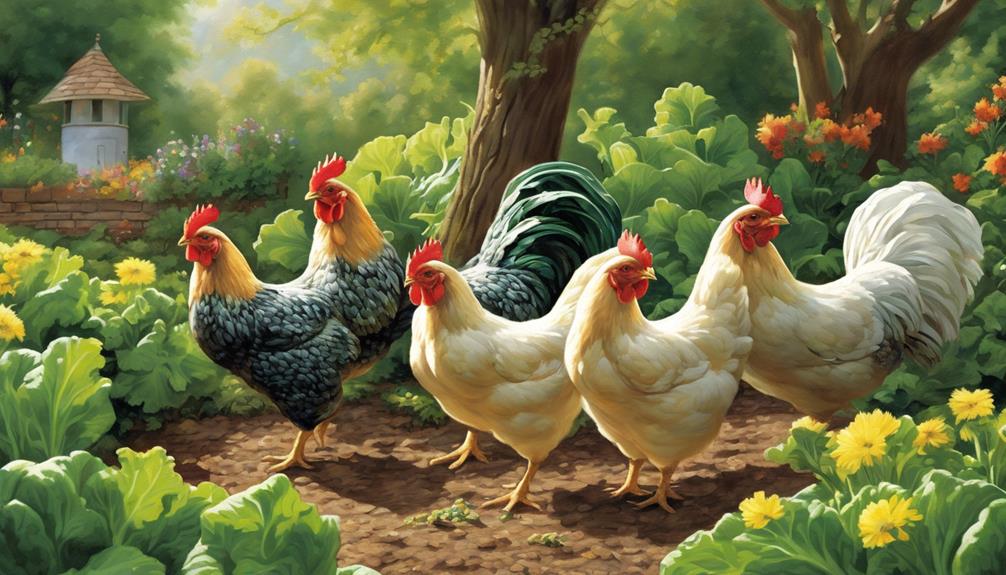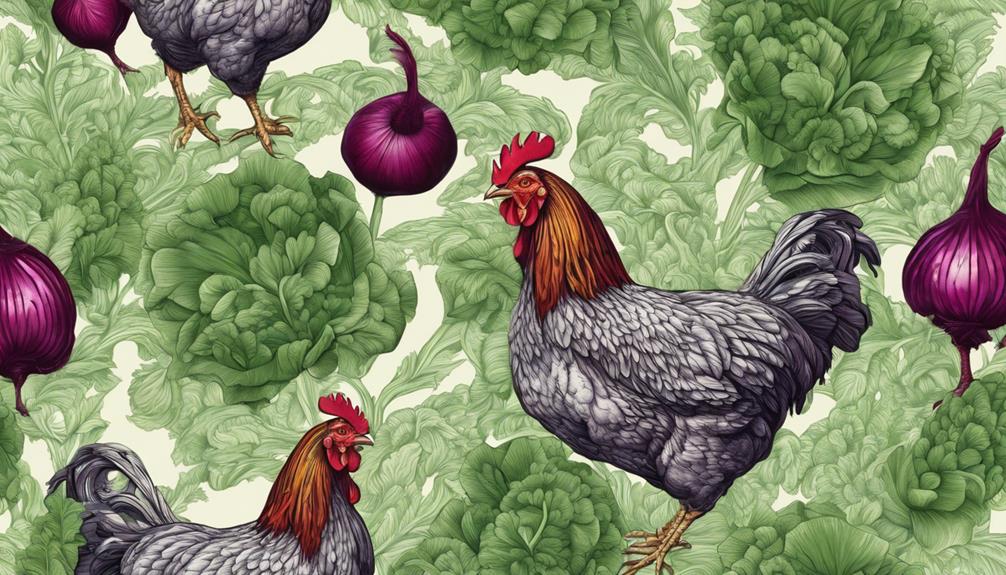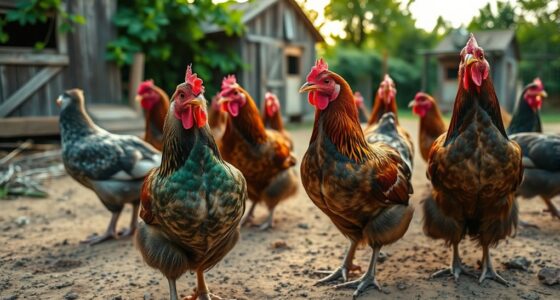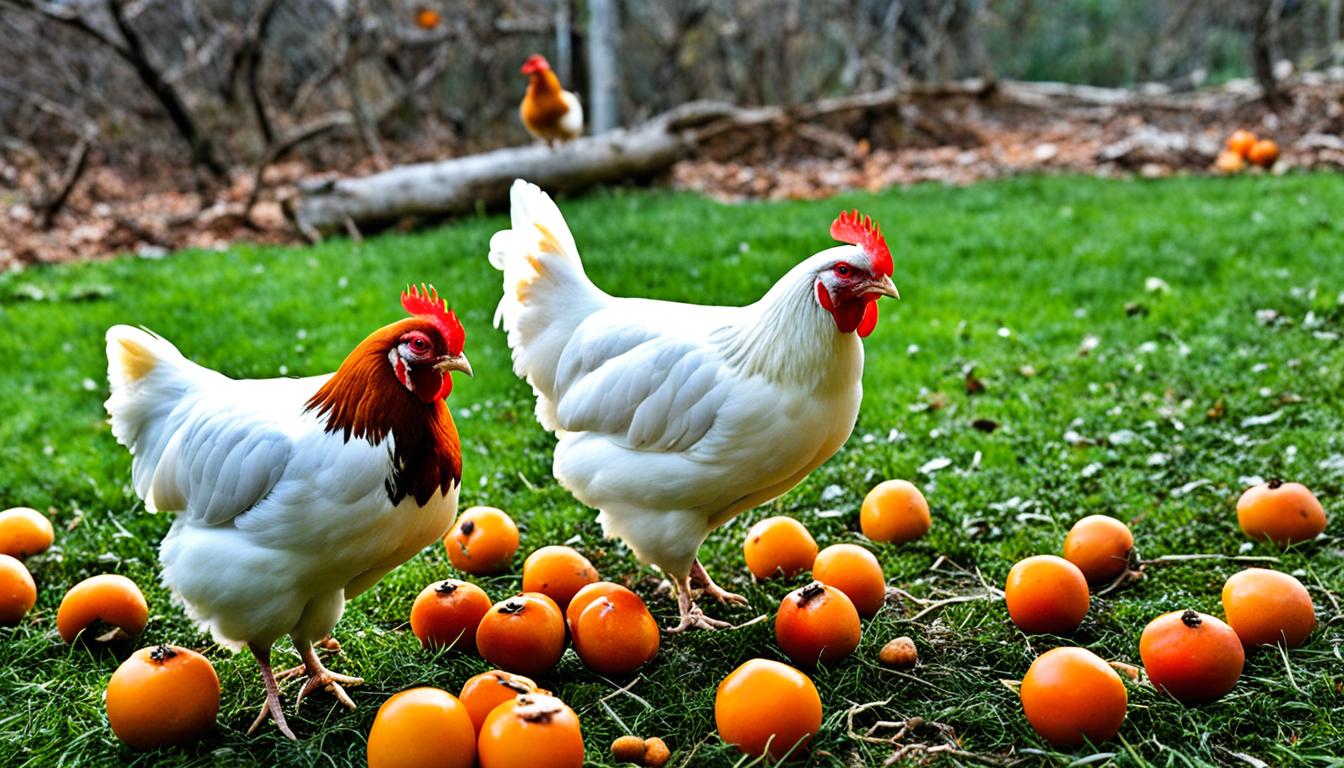We have found that chickens can safely eat mustard greens, which provide important vitamins like A, B6, C, and K, as well as essential minerals like manganese, calcium, and potassium. These greens, with their high water content, help with digestion and hydration, supporting various bodily functions in our feathered friends.
If you're curious to learn more about integrating mustard greens in your chickens' diet for optimal health, keep exploring the nutritional benefits, risks, and preparation suggestions.
Key Takeaways
- Mustard greens provide essential vitamins and minerals for chickens' health.
- Oxalic acid in mustard greens may hinder mineral absorption in chickens.
- Washing and chopping greens reduce pesticide risks and prevent choking hazards.
- Moderation is key to avoid health issues when feeding mustard greens to chickens.
- Including mustard greens in a varied diet supports overall well-being in chickens.
Nutritional Benefits of Mustard Greens
We've found that mustard greens offer an array of essential vitamins and minerals crucial for the optimal health of chickens. These greens are packed with vitamins A, B6, C, and K, which play vital roles in supporting various bodily functions in chickens.
Additionally, mustard greens contain essential minerals such as manganese, calcium, and potassium, all of which contribute to the overall wellbeing of the chickens. The high water content in mustard greens not only aids in digestion but also helps in keeping the chickens hydrated, especially during hot weather or periods of increased activity.
Risks of Mustard Greens for Chickens
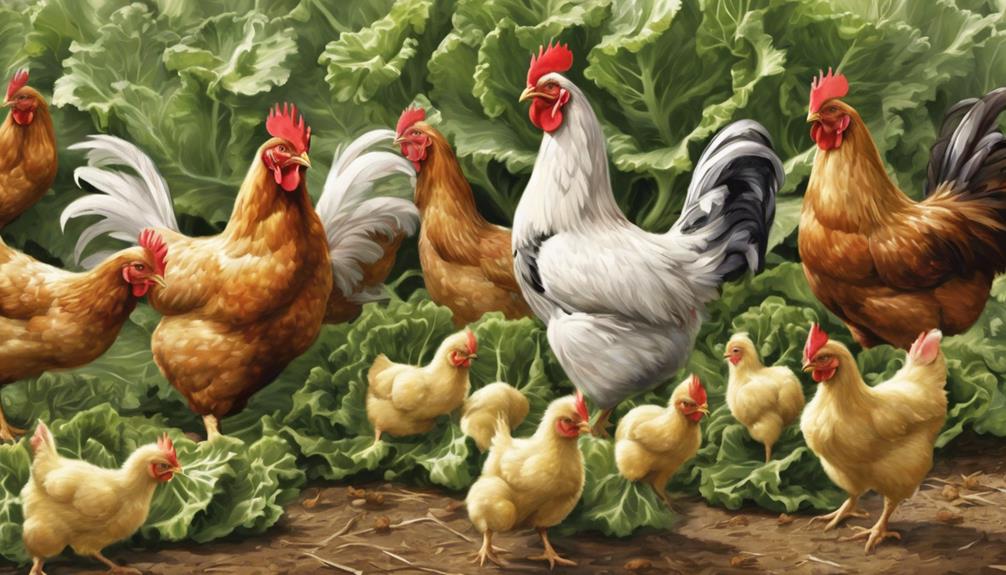
Containing oxalic acid that can hinder mineral absorption in chickens, mustard greens pose potential risks that should be carefully considered when incorporating them into a chicken's diet. To ensure the safety of chickens when feeding them mustard greens, it's crucial to understand and mitigate these risks:
- Nutrient Absorption: Oxalic acid in mustard greens can interfere with mineral absorption in chickens, particularly calcium, affecting overall health.
- Pesticides: If greens are treated with pesticides, these chemicals can be harmful to chickens. Sourcing untreated greens or thoroughly washing them before feeding is essential.
- Choking Hazards: Mustard greens should be chopped into smaller pieces to prevent choking hazards for chickens, promoting safe consumption.
Integrating Mustard Greens Into Diet
When integrating mustard greens into a chicken's diet, consider their rich content of essential vitamins and minerals to support overall health. Mustard greens are abundant in vitamins A, K, C, and E, providing crucial nutrients for your chickens. These vitamins play vital roles in maintaining healthy feathers, bones, and immune function. Additionally, mustard greens offer minerals like calcium, potassium, and iron, which are essential for various physiological functions in chickens. The dietary fiber present in mustard greens promotes gut health and aids in digestion.
It is important to practice moderation when feeding mustard greens to your chickens. While these greens are nutritious, excessive consumption can lead to issues such as interference with calcium absorption. To ensure safe integration into your chicken's diet, chop the mustard greens into smaller, manageable pieces. This not only facilitates consumption but also helps prevent choking hazards.
Preparation and Serving Suggestions
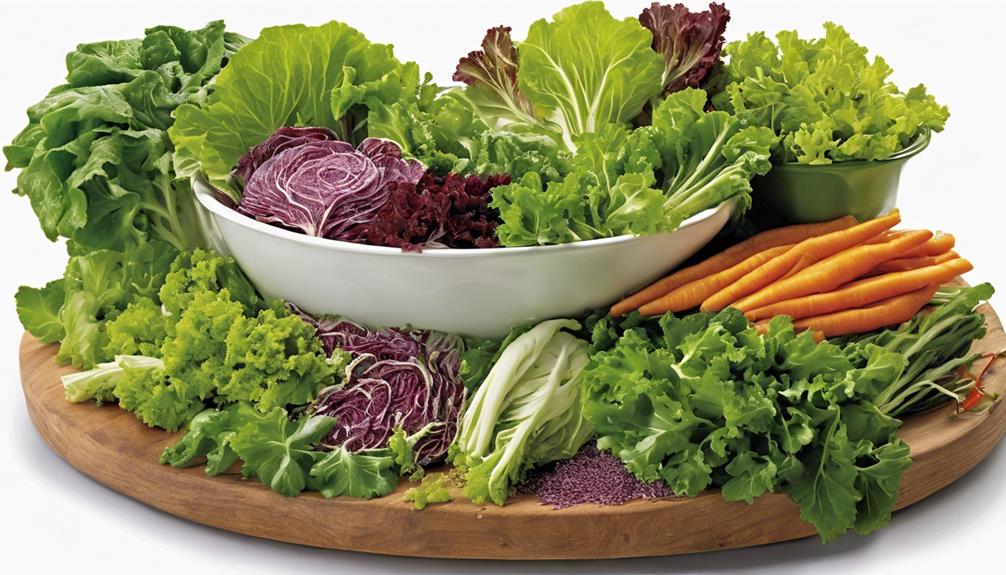
For optimal nutrition absorption and safety, varying the methods of preparing and serving mustard greens to chickens is crucial. When considering the preparation of mustard greens for chickens, it's important to keep in mind the following suggestions:
- Raw vs. Cooked: Mustard greens can be fed either raw or cooked to chickens. While cooking can sometimes make certain nutrients more accessible, feeding raw greens can also be beneficial as some nutrients may be lost during the cooking process. It's advisable to offer a mix of raw and cooked mustard greens to ensure a balance of nutrients.
- Chopping for Consumption: Chopping the mustard greens into smaller, bite-sized pieces can aid in consumption by chickens. This facilitates easier pecking and digestion, ensuring that the chickens can effectively utilize the nutrients present in the greens.
- Feed in Moderation: Feeding mustard greens in moderation is key to preventing potential digestive issues in chickens. While these greens are nutrient-rich, too much can upset the digestive balance, so it's essential to offer them as part of a varied diet.
Health Impacts of Mustard Greens

To understand the effects of mustard greens on chicken health, we must consider the rich array of essential vitamins and minerals these greens offer. Mustard greens are packed with vitamins A, K, C, and E, crucial for maintaining optimal chicken health. Additionally, they provide essential minerals such as calcium, potassium, and iron, which contribute to overall wellbeing.
The dietary fiber present in mustard greens supports a healthy digestive system in chickens by aiding in proper digestion. However, it's important to note that mustard greens contain oxalic acid, which can inhibit mineral absorption. Therefore, feeding these greens to chickens should be done in moderation to prevent any negative impacts on mineral absorption.
Ensuring that the greens are washed thoroughly and chopped before consumption can help in safe ingestion and maximize nutrient intake for chickens. By incorporating mustard greens into their diet cautiously, chicken health can benefit from the array of nutrients found in these vibrant greens.
Frequently Asked Questions
What Greens Should Chickens Not Eat?
We need to be cautious with the greens we offer our chickens. Rhubarb leaves, avocado parts, and nightshade plants like tomatoes and potatoes are off-limits due to their toxicity.
These contain harmful substances that can be dangerous to our feathered friends. It's crucial to keep these greens out of their diet to ensure their well-being and longevity.
Always prioritize their health by avoiding these potentially harmful foods.
What Should You Not Feed Chickens?
We shouldn't feed chickens avocado skins and pits due to the toxin persin. Plants containing solanine like green potatoes and tomato leaves are harmful to chickens.
Foods like chocolate, cocoa, coffee, sugary treats, almonds, pecans, and moldy or spoiled foods should be avoided as they can disrupt chickens' digestive systems and are toxic.
It's important to be mindful of what we feed our chickens to keep them healthy and safe.
Does Mustard Stop Chickens From Eating Eggs?
Mustard greens don't deter chickens from eating eggs. Scientific evidence shows no link between mustard greens and egg consumption in chickens. These greens are a safe and nutritious addition to a chicken's diet.
Feeding mustard greens to chickens is unlikely to affect their egg-laying behavior. In fact, mustard greens can be a beneficial nutritional source for chickens without impacting their egg production.
Can Chickens Eat Mustard Seeds?
Yes, chickens can eat mustard seeds as part of their diet. Mustard seeds are a rich source of protein, fiber, and essential minerals for chickens.
Grinding the seeds can aid in easier consumption. Introduce them gradually to monitor the chickens' response and prevent overfeeding. Mustard seeds not only provide a tasty treat but also offer nutritional benefits.
Remember moderation is key when incorporating them into the chickens' diet.
Can Chickens also Eat Mustard Greens Along with Chia Seeds?
Yes, chickens eating chia seeds suggested. Mustard greens are safe for chickens and can be a healthy addition to their diet. They are packed with nutrients and can be a great source of fresh greens for your flock. Just make sure to introduce new foods gradually to avoid digestive upset.
Conclusion
In conclusion, incorporating mustard greens into your chickens' diet can provide them with essential nutrients and promote overall health.
While some may worry about potential digestive issues, proper preparation and moderation can help mitigate any risks.
By introducing this nutritious leafy green into their meals, you can ensure your feathered friends are receiving a well-rounded and balanced diet.
So go ahead, treat your chickens to some mustard greens and watch them thrive!
